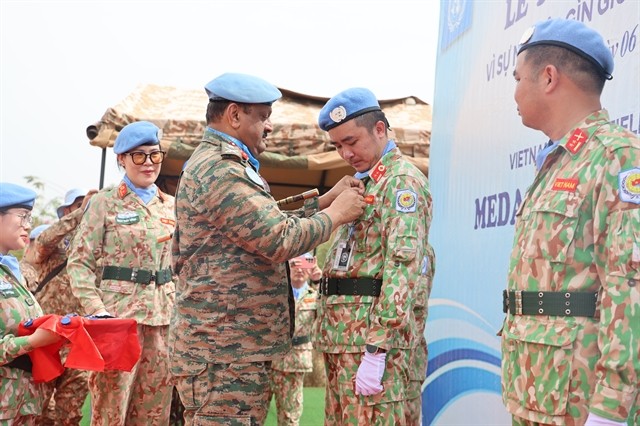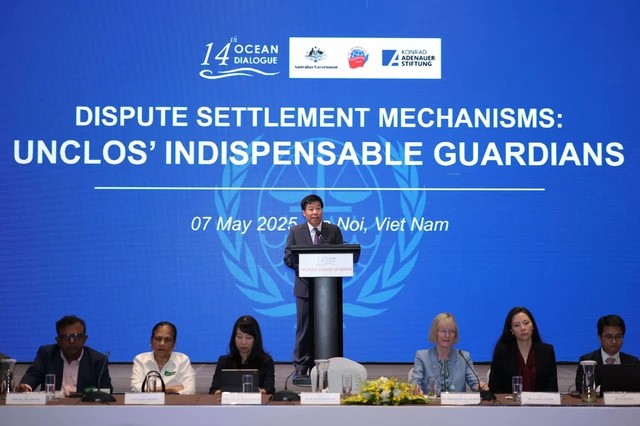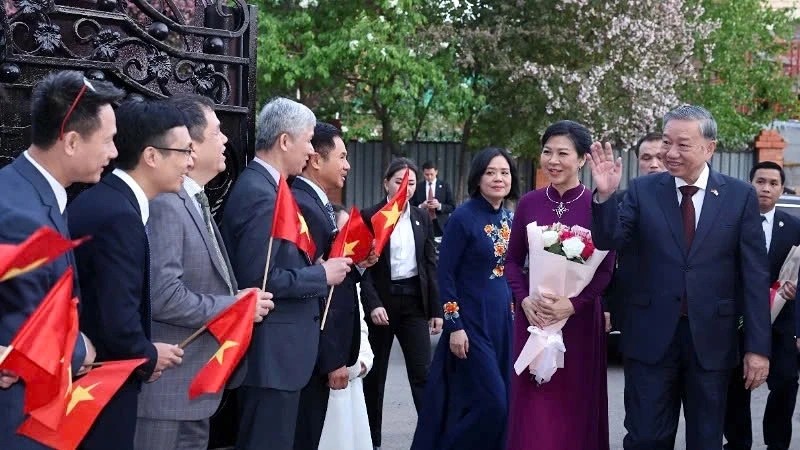HCM City’s steps to protect children
Ho Chi Minh City’s Department of Labour, Invalids and Social Affairs plans to submit a report to the municipal People’s Committee on the best ways to protect children and help them live in a safe, healthy and inclusive environment.
 |
Illustrative image. (Source: 24h.com.vn)
Dang Hoa Nam, director of the Ministry of Labour, Invalids and Social Affairs’ Department of Child Care and Protection, said the focus would be on protecting two million children under 16 years old, 550,000 children under six years old, 400 children with disabilities, 100 orphans, and thousands of disadvantaged children, as well as children who receive allowances in HCM City under official social assistance policies.
Nam spoke at a dialogue on child care and protection on October 3 held by the city’s Department of Labour, Invalids and Social Affairs and Save the Children in Vietnam.
Participants discussed the roles and responsibilities of local government, police, family, media, and social organisations in child care and protection.
Tran Ngoc Son, vice director of the city’s Department of Labour, Invalids and Social Affairs, welcomed ideas from participants on how to protect vulnerable children at high risk of child abuse, including street children, orphans, children from poor and near-poor families, and children working and living away from their family.
“Abuse cases impair children’s development and seriously affect their physical and mental health, as well as their dignity,” he said.
The city has about 1.9 million children, or more than 22 percent of the population of nearly 10 million.
Recent research shows that many adults in the city are not aware of the severe consequences, both short- and long-term, of child abuse.
Improving awareness about children’s rights and child protection is critically important, said Son.
Many parents believe that males and females have different social roles and tasks, and that the use of physical punishment by schools or parents is justified.
Parents often blame their children when the latter are sexually harassed or assaulted.
In addition, forms of harassment and violence against children are often handled by different government agencies.
For example, responsibility for domestic violence is managed by the Ministry of Culture, Sports and Tourism, while human trafficking victims are covered by the Ministry of Public Security.
Child marriages are overseen by the Ministry of Health’s General Department of Population and Family Planning, while child sex abuse cases are under the Ministry of Labour, Invalids and Social Affairs.
Another problem facing the city is the lack of periodic data collection about the progress of interventions to prevent child abuse.
In addition, documentation of cases related to child abuse, sexual violence and harassment remains insufficient, according to the city’s Department of Labour, Invalids and Social Affairs.
Nam also emphasised the media’s role and responsibility in the fight against child abuse.
Recently, media reports have included information about child abuse, kidnapping and murder cases, causing psychological pain and anxiety for families and concern among the public.
Many cases of wrongdoing and fraud, including disclosure of private information, have occurred via social media.
“Information that indicates that child abuse has occurred is often not being reported to authorities,” Nam said.
Nam said that violations of the law on protection and care of children must be more strictly enforced./.
VNF/VNA
Recommended
 National
National
Vietnam News Today (May 13): Vietnam Maintains High Human Development Index Despite Global Slowdown
 National
National
Vietnam News Today (May 12): Party General Secretary Meets With Russian Experts, Intellectuals
 National
National
Vietnam News Today (May 11): Vietnam, Austria to Boost Cooperation in High-Tech Development, Innovation
 National
National
Vietnam News Today (May 10): Vietnamese Peacekeepers Honored with UN Medal in South Sudan
 National
National
Vietnam News Today (May 9): Vietnam Ready to Work With Russia to Elevate Relations
 National
National
Vietnam News Today (May 8): Vietnam Remains Committed to UNCLOS
 National
National
Vietnam News Today (May 7): Vietnam Hosts Over 7.67 Million International Visitors in First 4 Months
 National
National
